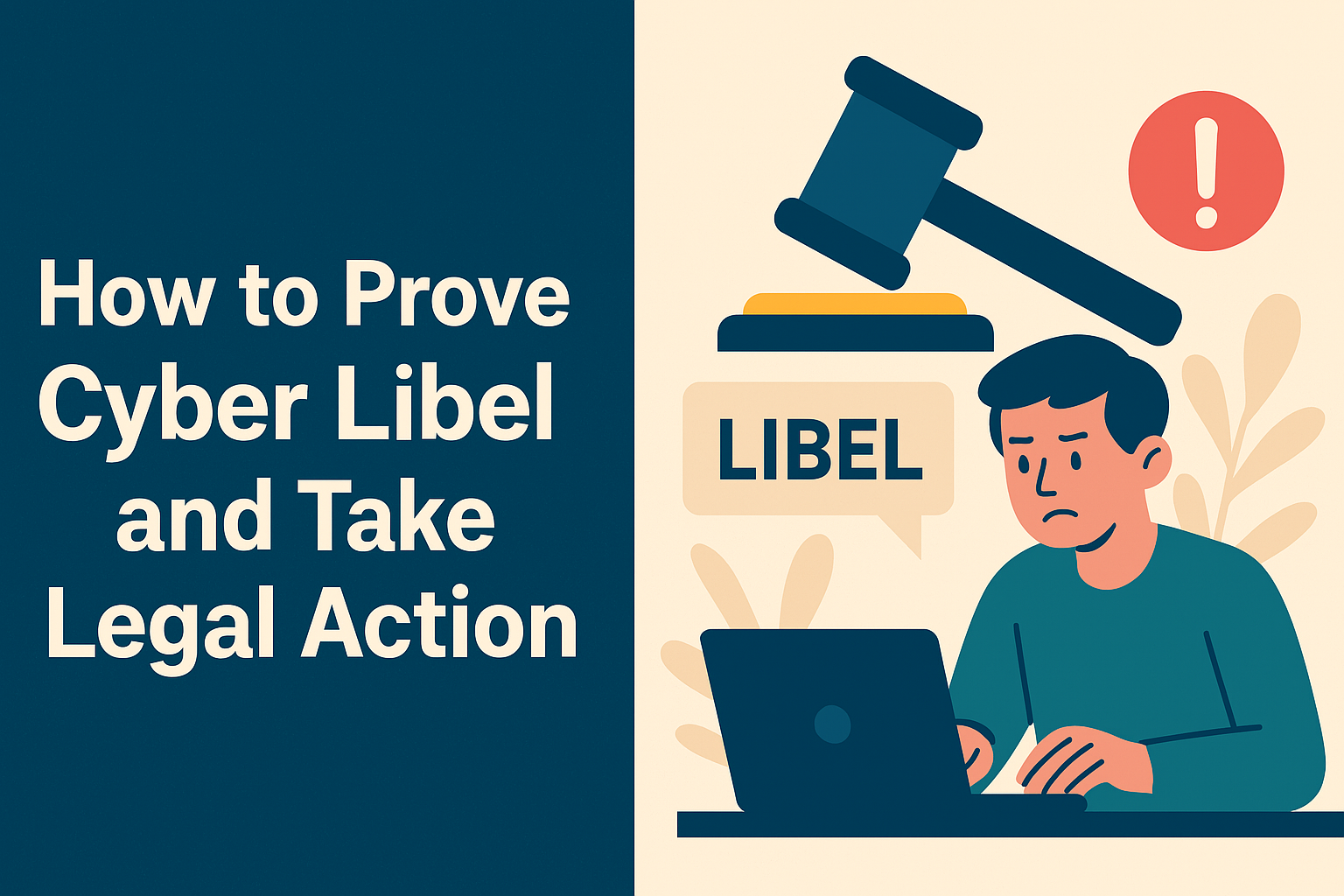Estimated reading time: 3 minutes
Table Of Content
What Is Cyber Libel?
Cyber libel is the act of publishing false and defamatory statements about someone online, typically through social media, forums, blogs, or reviews. It is a written form of defamation, distinguishable from slander, which refers to spoken defamation.
To successfully sue for libel, the burden of proof lies with the plaintiff—meaning you must demonstrate how the false content damaged your reputation, business, or livelihood.
Legal Elements You Must Prove
To bring a viable case of cyber libel, you must establish the following elements:
- False Statement of Fact
The statement must be objectively false—not an opinion or satire. - Publication to a Third Party
The statement must have been shared publicly online, not privately. - Identification
It must be clear the defamatory content refers to you (directly or indirectly). - Harm to Reputation
Demonstrate loss of income, emotional distress, or reputational damage. - Fault
Show the defendant acted negligently (for private individuals) or with actual malice (for public figures).
Collecting Evidence for a Cyber Libel Case
To build a strong case, gather all relevant documentation and data. This includes:
- Screenshots of defamatory content
- URLs, post timestamps, and platform names
- IP addresses or usernames (if known)
- Archived pages via Wayback Machine
- Witness statements or business impact records
Code Snippet: Evidence Log Format
Date: 03/29/2025
Platform: Facebook
Username: @exampleuser
Content: “John Doe is a thief and scammer.”
URL: https://facebook.com/examplepost
Screenshot saved: /evidence/fb-post-johndoe.pngSteps to Sue for Libel Online
Step 1: Send a Cease and Desist Letter
This is a formal warning demanding the removal of the content. It shows you took steps to resolve the matter outside court.
Step 2: Consult a Defamation Attorney
Libel laws vary by state and country. An attorney will determine if your case qualifies for litigation.
Step 3: File a Civil Lawsuit
Once your legal team has gathered sufficient evidence, they’ll file a complaint in civil court. Remedies may include:
- Monetary compensation (general and punitive damages)
- Injunctions to remove or block defamatory content
- Court-ordered apologies or retractions
Step 4: Consider Platform-Specific Remedies
Use tools from:
Challenges in Online Defamation Cases
- Anonymous Defendants: Subpoenas may be needed to unmask hidden users.
- Jurisdictional Issues: The internet crosses borders, making jurisdiction complex.
- Proof of Harm: You’ll need to demonstrate tangible harm (e.g., lost sales or contracts).
“Truth is a defense, but context and intent still matter.” — Electronic Frontier Foundation
When to Call Defamation Defenders
When defamatory content starts impacting your income, career, or mental health, don’t wait. Defamation Defenders provides:
- Expert evidence analysis
- Cease and desist drafting
- Legal referrals and lawsuit support
- SEO services to suppress false content
🎯 Contact Defamation Defenders for a confidential case review.
FAQ: Proving and Suing for Cyber Libel
Yes, as long as you preserved the content (e.g., screenshot, archive). Deletion does not erase liability.
Usually 1 to 3 years from the date of publication. It varies by state.
Yes. Statements alleging crimes, diseases, or professional misconduct are presumed damaging.
You can request it, but most platforms are protected under Section 230 and won’t act without a court order.
Settlements range from a few thousand dollars to millions, depending on the damage.
If you enjoyed this article, you might also like the following posts from our blog:



